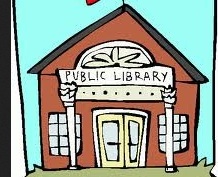Melissa Tabeek writes: The historic creation of municipal public libraries in Lebanon’s capital city happened at the end of a 15-year civil war. The evolution of their idea coincided with the first municipality elections in over 30 years, in 1998. The government did not know how to manage a municipal public library network, but signed a renewable three-year contract with NGO ASSABIL. To start, the municipality provided the group with a free-of-charge space and minimal funding — ASSABIL has largely relied on private funding — and only two years after becoming an official nonprofit organization, Beirut’s first municipal public library opened in Bachoura in 2000.
Since then, two other public libraries have opened in the Beirut districts of Geitawi and Monot. A fourth is planned to open this year in Tarik al-Jdeideh, and consultations have started for a fifth library in Sassine. Every library’s collection is roughly 60% Arabic and 40% French and English, according to Boulad. Even the organization of the books in each space is meant to be nonsectarian, organized not by language, but by subject.
Additionally, a mobile library, the “Kotobus,” transports books to Beirut’s northern and southern suburbs where there are no libraries. The ASSABIL office in Ras al-Nabeh doubles as a resource and training center. The whole public network is privately managed by the organization.
Privatization of the public sector is not an entirely new concept in Lebanon, according to Karim Mufti, a political analyst and public policy expert. Though it existed before Lebanon’s civil war, it grew much more prevalent afterward. Even today, the backgrounds of municipal leaders — who are also businessmen, engineers and private sector managers — foster a natural connection with the private sector and its management of public missions and space, according to Mufti.
Since the first library opened in Bachoura, the budget of ASSABIL grew from $12,000 in 1998 to $620,000 in 2011. In addition to managing the Beirut network, the organization also supports about 25 public libraries throughout Lebanon with resources, training and evaluations, among other things.
For the fourth library in Tarik al-Jdeideh, the Beirut municipality has agreed to contribute $1 million to the project, but the struggle to maintain the network remains. The municipality has massive resources — a surplus of about $800 million — and Boulad hopes that more money will be invested in Beirut’s library network moving forward.
Though Boulad is passionate about ASSABIL, he added, “It should be that someday ASSABIL will vanish. It would be a good thing, except that we know how to make the place dynamic. We would be a consultant only.”
Boulad, who is also a poet, said that providing a diversity of books and therefore ideas, is not only a right of the people, but a profound need in these troubled times in Lebanon. Whether the public or private sphere is managing it is not important to him, but rather that it continues to exist and grow.
“Promoting public libraries is promoting spaces where critical thinking and free thinking are valued. Since our societies are threatened, they are in need as much as bread and love. This is our survival.”

